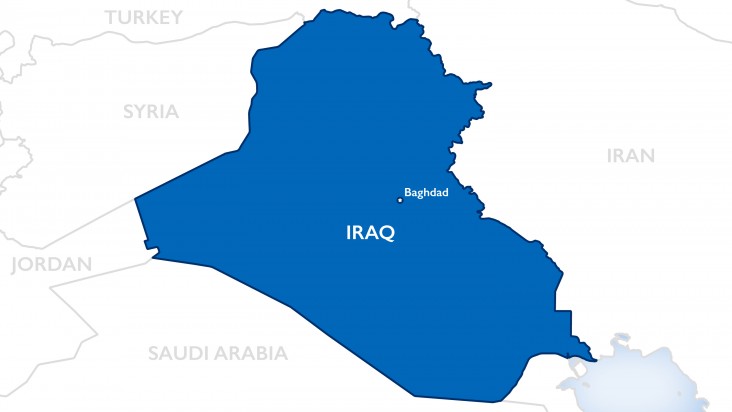- What We Do
- Agriculture and Food Security
- Democracy, Human Rights and Governance
- Economic Growth and Trade
- Education
- Environment and Global Climate Change
- Gender Equality and Women's Empowerment
- Global Health
- Humanitarian Assistance
- Transformation at USAID
- Water and Sanitation
- Working in Crises and Conflict
- U.S. Global Development Lab
Speeches Shim

Increasing stability in Iraq by improving conditions that allow for durable returns in areas liberated from ISIS.
WHY USAID/OTI IS IN IRAQ
In 2014, ISIS swept into Iraq and captured large swaths of territory. The legacy of ISIS’s violent occupation—physical destruction, psychological scars, and mass displacement—is evident across much of northern and western Iraq, with religious and ethnic minority populations facing acute challenges to recovery. USAID/OTI helps communities affected by ISIS recover from the conflict and works toward a more pluralistic and socially cohesive future. Iraq is a U.S. foreign policy priority in the Middle East, and an inclusive and stable country is necessary for long-term solutions to fight extremism and terrorism threats facing the United States.
USAID/ OTI’S ROLE IN IRAQ
The goal of the USAID/OTI Iraq program is to increase stability through strategic interventions in the Ninewa Plain, Mosul, Sinjar, and western Anbar. USAID/OTI partners with civil society organizations, faith-based groups, and local government entities to implement quick-impact activities that enable the durable return of communities displaced by ISIS. To achieve this goal, USAID/OTI works toward two main objectives:
- To improve conditions in areas liberated from ISIS that allow for durable returns of internally displaced persons (IDPs); and
- To mitigate discrete, emergent challenges that threaten overall stability.
PROGRAM HIGHLIGHTS
-
USAID/OTI works to restore essential public services in communities liberated from ISIS to create the conditions needed for the durable return of IDPs. In Mosul, USAID/OTI delivered more than 34 miles of electric cables and rehabilitated 25 electrical substations, expanding electricity access to thousands of residents.
-
USAID/OTI ensures that students are able to return to school—a priority in conflict-affected areas. USAID/OTI helped equip nearly 150 schools, procured more than 30,000 school kits, and provided backpacks and uniforms to approximately 20,000 primary school students in Mosul, Sinjar, and the Ninewa Plain.
-
USAID/OTI responds to the COVID-19 pandemic by working to improve public healthcare facilities and services, organizing COVID-19 prevention awareness campaigns, and supporting socio-economic recovery and resilience among marginalized and vulnerable populations.
- USAID/OTI helped improve safety perceptions by installing more than 4,600 street lights in 12 towns in the Ninewa Plain, Sinjar, and western Anbar. As a result, businesses were able to stay open later and families—including women and children—felt safe enough to leave their homes at night.

Comment
Make a general inquiry or suggest an improvement.